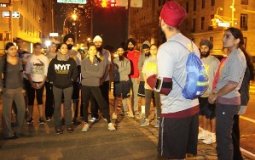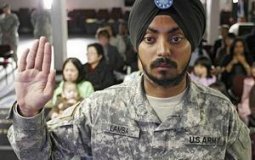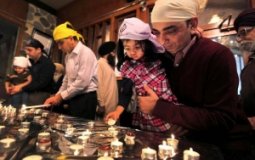Sikhs constitute one of the many persecuted minority communities in India, and their commitment to standing for justice has made them a regular target of oppression for centuries.
As major institutions around the world work to establish equal rights and equal opportunities for all citizens, the military ought to be ahead of the curve, not behind it.
I had never before seen anyone protest an interfaith gathering.
Sikh Americans, who were targets of domestic terrorism in Oak Creek, Wisconsin, this past August have been particularly active in condemning the attack and organizing opportunities for community healing.
On Saturday members of the California team showed their commitment to defending human rights in Punjab, India by joining the "Appear for the Disappeared 5K Walk" organized by Ensaaf.
An improved approach to data collection will help us better understand the problem of hate bias in our society, and a better understanding will lead to an increased ability to address this problem.
The ban is a double-bind faced by Sikhs in this country: While others continue to look at Sikhs as foreign and alien, Sikh Americans are unable to counter this stereotype by giving their lives to this country.
Traditionally, the Sikh community does not lament periods of persecution and hardship but instead celebrates the contributions and sacrifices made by the community members and greater society living within those moments.
American society tends to delude itself into believing that ignorance is the exclusive source of hate-violence. Part of the reason for this is that this idea is more comforting than the reality. It’s comforting for us to think that people would be compassionate towards one another if they were more educated.
Sikhi understands suffering as a mental construct. One who is spiritually connected with the Divine does not suffer,...











